The No Surprises Act took effect this year and employers could see some positive impacts to their self-funded health plans in the form of reduced out-of-network costs and simplified regulatory requirements.
The new law was approved by Congress in 2020 and went into effect Jan. 1, 2022.1 The basis of the legislation is to ban most “surprise” or unexpected medical charges from out-of-network (OON) providers. According to the Kaiser Family Foundation, “The term ‘surprise medical bill’ describes charges arising when an insured person inadvertently receives care from an OON provider. Surprise medical bills can arise in an emergency when the patient has no ability to select the emergency room, treating physicians, or ambulance providers. Surprise bills can also arise when a patient receives planned care.” 2
For members covered by large employer self-funded health plans, “18% of all emergency visits and 16% of in-network hospital stays had at least one unexpected OON charge associated with the care” [that was not expected], according to Kaiser. SmartLight Analytics’ looked at what the No Surprises Act could mean for self-insured employers and how it could impact plans and members. A few points to note are when an employee member receives unavoidable OON services, the No Surprises Act provides a clear guideline of how much the provider should be paid by the payer or employer groups based on the qualified payment amount. In the past, this was not the case as OON charges were not based on any agreed upon cost or limit. The qualified payment amount defined by the legislation and the Centers for Medicare and Medicaid Services (CMS) Interim Final Rule (Part 1),3 which implements certain provisions of the Act, is based on in-network allowed amounts and local area prevailing rates. The cost of OON services should then not differ substantially from that of an in-network service. The structure established by the legislation simplifies dealing with regulatory requirements for plan administrators, which should be a welcome change. Employer groups now have a method by which members will receive notification if they knowingly choose OON services. And the complaint process for surprise bills is clarified. Whether this brings better member satisfaction remains to be seen.
The bottom line for employers is still uncertain but initial impressions of the No Surprises Act is that there are mixed aspects of the new legislation but more positive than negative impacts.
Positive impacts of the legislation are that the Act:
- Brings down the cost for some out of network services.
- Decreases the need to negotiate single case agreements.
- Standardizes the processes and payments for needed OON services and review when there is a dispute. This may start off as a mixed positive and negative for employers as it could initially be a burden to implement but in the end a smoother system should emerge. And it should decrease administrative cost.
- Should ultimately improve member satisfaction through pre-notifications, though there could be some negative feelings for members and providers due to the burden of the notifications. However, overall “no surprises” is good for members, self-insured group and in many way providers because bills are more likely to get paid.
- Requires good faith estimates and the dispute process, which should be positives for members and could help payer groups decrease and simplify disputes. (Currently in effect for the uninsured.)
The one negative for employers is that the new law may slow network expansion as insurers may have little incentive to expand since they will likely only end up paying the qualified payment amount for OON services. This amount may indeed be less than the contracted rates they can negotiate. In the long run, this could negatively impact the continuum and coordination of care that thrives when stronger networks are build.
So far, the most controversial part of the law’s implementation (not the law itself) is the alleged bias by the CMS toward using qualified payment amounts as the starting place for payment disagreement resolution. A Texas judge recently threw out a piece of the surprise billing rule saying that the law does not direct arbiters to weigh any one factor or method more than others.4 The No Surprises Act [NSA] does allow arbitrators to consider other factors when working to reach an agreement such as the patient’s condition, the doctor’s level of training and expertise, both parties’ market shares and past efforts to reach an agreement. Assuming that the arbitration process is not inherently flawed, it appears that the No Surprises Act will significantly decrease the current practice of unlimited OON payments for the subset of health care addressed by the legislation.
SOURCES
- “Requirements Related to Surprise Billing Part I,” Federal Register, July 13, 2021. https://www.federalregister.gov/documents/2021/07/13/2021-14379/requirements-related-to-surprise-billing-part-i#p-40
- Pollitz, Karen, et. al “An examination of surprise medical bills and proposals to protect consumers from them,” Peterson-Kaiser Family Foundation Health System Tracker, February 10, 2020. https://www.healthsystemtracker.org/brief/an-examination-of-surprise-medical-bills-and-proposals-to-protect-consumers-from-them-3/
- “Ending Surprise Medical Bills,” Centers for Medicare and Medicaid Services, February 16, 2022. https://www.cms.gov/nosurprises
- Liss, Samantha, “Texas judge throws out piece of surprise billing rule in win for providers,” Healthcare Dive, February 24, 2022. https://www.healthcaredive.com/news/texas-judge-strikes-down-part-surprise-billing-rule/619357/?utm_source=Sailthru&utm_medium=email&utm_campaign=Newsletter%20Weekly%20Roundup:%20Healthcare%20Dive:%20Daily%20Dive%2002-26-2022&utm_term=Healthcare%20Dive%20Weekender
OTHER RESOURCES
- CMS comments https://www.cms.gov/nosurprises/Ending-Surprise-Medical-Bills and https://www.cms.gov/nosurprises/policies-and-resources/overview-of-rules-fact-sheets
- American Medical Association Summaries https://www.ama-assn.org/delivering-care/patient-support-advocacy/implementation-no-surprises-act and https://www.ama-assn.org/system/files/2021-02/surprise-billing-provisions-guide.pdf
- Luhby, Tami “Patients won’t have to fear as many surprise medical bills come January” CNN, December 28, 2021. https://www.cnn.com/2021/12/28/politics/no-surprises-act-2022/index.html

